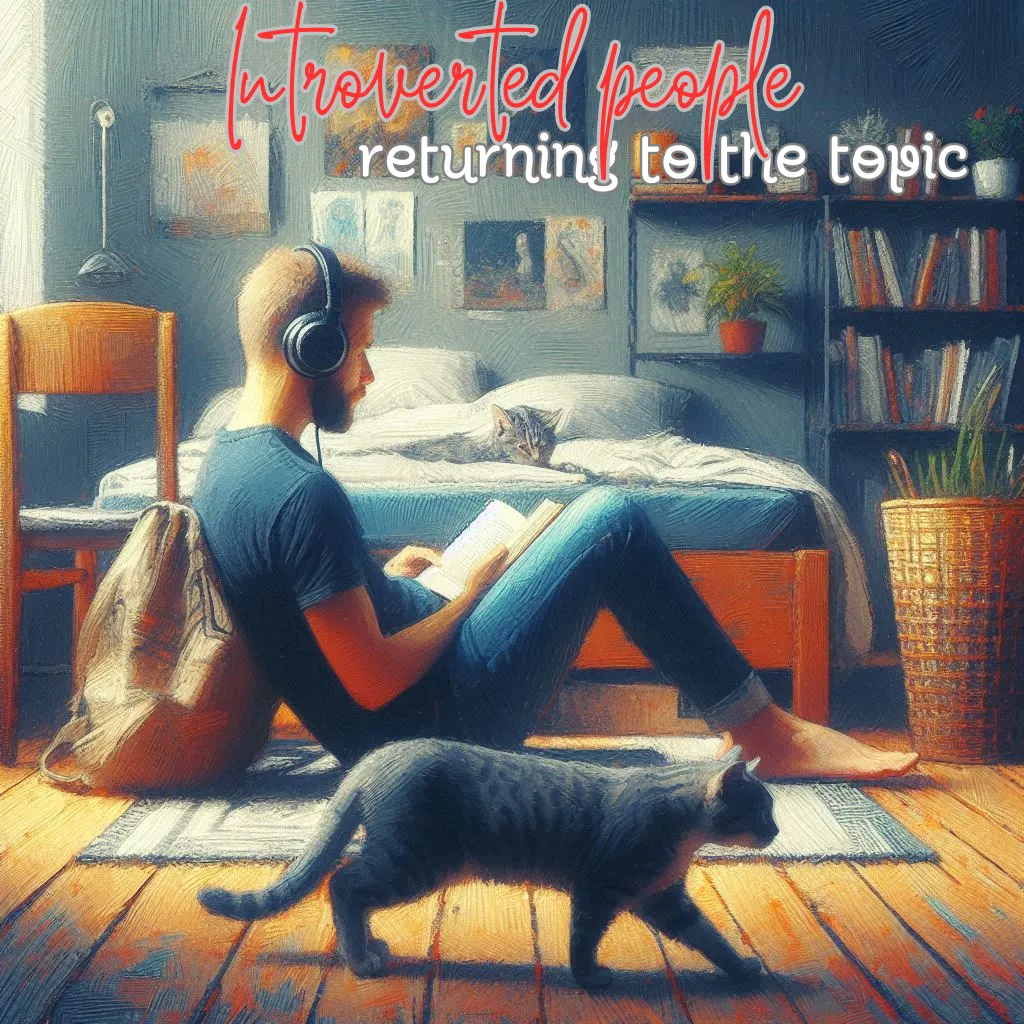
Después de haber escrito varios párrafos, me di cuenta de que en mi blog ya había dedicado una entrada a hablar de la introversión de la noción que se tiene sobre las personas exitosas. Pero en vez de cancelar la publicación y buscar un nuevo tema, decidí continuar con el hilo que ya traía. En parte por pereza, pero en parte también porque cuando alguien se narra, lo hace sobre el tejido ya existente de sí, pero con cada nueva narración, hay cosas que cambian en dicho tejido.
La personas tienden a ser definidas de muchas maneras, y es cuando nos damos cuenta de que por ser tantas esas maneras de definirnos, que todos y todas somos únicos y diferentes. De hecho, lo único que tenemos las personas en común es precisamente eso, que todos y todas somos diferentes. Y qué bueno que así sea, porque es lo que le da ese toque de belleza a los vínculos que creamos a lo largo de nuestras vidas. Pero hoy no vengo a hablar de variedad, o quizás sí, ya eso lo decidirás tú quien me está leyendo. Hoy vengo a hablar de uno de los dos extremos de una dimensión de la que solemos hablar mucho diariamente quizás sin darnos cuenta: la introversión. Obviamente, no faltará la referencia a la cultura y al sistema socioeconómico; dos ingredientes fundamentales a la hora de hablar de temas constitutivos del ser humano.
Primero, creo que es importante partir de lo que entendemos por introversión. Si hacemos una búsqueda rápida por internet, nos daremos cuenta de que se trata de un rasgo de la personalidad que se caracteriza por la inclinación de las personas a su «mundo interior» o «procesos internos»; dos conceptos bastante ambiguos, pero que generalmente se asocian a la preferencia de estas personas por actividades individuales como leer, escribir, pintar o investigar, y que pueden sentirse agotadas o sobrecargadas por demasiados estímulos sociales. Si vamos a la definición que nos ofrece el Diccionario de la Lengua Española, podremos que nos dice que se trata de una:
«Condición de la persona que se distingue por su inclinación hacia el mundo interior, por la dificultad para las relaciones sociales y por su carácter reservado».
Fijémonos bien en esta definición porque sobre ella volveremos después, pero por ahora, podemos hacernos una idea de cómo suelen ser las personas introvertidas. Pues bien, estas personas generalmente son víctimas de la presión que sobre ellas ejercen la mayoría de los contextos en los que se encuentran. ¿Por qué? Pues porque constantemente son bombardeadas con mandatos de ser más sociables, más activas, más «espabiladas» como si ser introvertido o introvertida fuera una especie de síntoma que indica que algo anda mal. Es tanta la presión con la que tienen que lidiar diariamente que terminan por normalizarla a la vez que se empujan a complacer dichas demandas de su entorno.
En mi criterio, formado tanto por mi experiencia clínica como por mi experiencia personal como persona que se considera introvertida, todo esto se debe a una representación distorsionada de lo que es el éxito. Si, leíste bien: el éxito. Ocurre que se tiende a asociar la noción de persona exitosa con aquella persona capaz de llevar a cabo numerosos contactos sociales porque, mientras más te vincules con las personas, más vas a engrandecer tu narcisismo en la medida en la que eres más reconocido por los otros. Entonces, éxito... narcisismo... solo falta un elemento, y es que el éxito y el narcisismo no se sostienen por sí solos, sino que es necesaria una cultura de la hiperproductividad (otra variante del consumismo) que nos precipite a cada día hacer y ser más mientras nos convertimos esclavos de nuestros propios fetiches.
Teniendo estos tres elementos es fácil sostener el estereotipo de que las personas introvertidas tienen problemas, son amargadas, son tímidas, son fracasadas, tienen depresión y toda la sarta de creencias irracionales que, nuevamente, sirven para establecer una frontera entre lo que somos y lo que vemos como diferente y que por tanto está mal porque queda fuera de la frontera. Es cierto que somos seres sociales, pero serlo no implica necesariamente mantener vínculos concretos con otras personas todo el tiempo. Las personas introvertidas están muy lejos de cumplir con el estereotipo antes mencionado, porque ser introvertido lo que realmente implica es una forma -otra- de ser y estar en el mundo, en la que no necesitan tanto, como otras personas, del contacto social para satisfacer sus necesidades, y mucho menos, contrario a lo que dice la definición del Diccionario de la Lengua Española, que tengan dificultades para relacionarse. Ellos y ellas pueden hacerlo, solo que cuando de verdad les interesa y no cuando un mandato social les dicen que tienen que hacerlo.

Por otro lado, afirmar que las personas introvertidas son deprimidas o tienen problemas personales, más bien, habla de que estas personas no responden al narcisismo de quien juzga, que reclama el reconocimiento del otro para satisfacer sus respectivas necesidades, y como defensa a lo indescifrable de la otredad se erige un muro para evitar cualquier identificación posible. En otras palabras, como la persona introvertida no me da lo que quiero porque me cuesta reconocer que necesito de ella para sentirme bien y satisfacer mis necesidades de socialización, pues me alejo para atacarla al modo más infantil posible.
La introversión es un rasgo más que nos caracteriza; uno de tantos que conforman al ser humano y su exquisita variedad. Poseer dicho rasgo no nos hace contenedores de problemas ni enfermedades aunque la sociedad se empeñe por hacernos creérnoslo, y más aún cuando el éxito no es uno para todos y todas, sino que es relativo a cada persona según su historia de vida, su contexto y sus intereses.
English version

After writing several paragraphs, I realized that I had already dedicated a post on my blog to discussing introversion and the notion of successful people. But instead of canceling the post and searching for a new topic, I decided to continue the thread I was following. Partly out of laziness, but also because when someone narrates their own story, they do so on the existing fabric of themselves, yet with each new narrative, something in that fabric changes.
People tend to be defined in many ways, and that's when we realize that, because there are so many ways to define ourselves, each and every one of us is unique and different. In fact, the only thing we all have in common is precisely that — that we are all different. And it’s a good thing too because it's what adds a touch of beauty to the connections we create throughout our lives. But today, I’m not here to talk about variety. Or perhaps I am, that’s up to you, the reader, to decide. Today, I want to talk about one of the two extremes of a dimension we often speak about, perhaps unknowingly, every day: introversion. Obviously, there will be references to culture and the socioeconomic system — two fundamental ingredients when discussing aspects of human nature.
First, I think it's important to start with what we understand by introversion. If we do a quick internet search, we’ll find that it’s a personality trait characterized by people's tendency toward their "inner world" or "internal processes" — two fairly ambiguous concepts, but which are generally associated with a preference for activities like reading, writing, painting, or researching, and a feeling of exhaustion or overload from too much social stimulation. If we look at the definition given by the Diccionario de la Lengua Española, it tells us that it is:
“The condition of a person characterized by a tendency toward the inner world, difficulty in social relationships, and a reserved nature.”
Let’s pay close attention to this definition because we’ll return to it later. But for now, we can get a general idea of what introverted people tend to be like. These individuals are often victims of the pressure exerted by most of the contexts they find themselves in. Why? Because they are constantly bombarded with mandates to be more sociable, more active, more "lively," as if being introverted were some kind of symptom indicating that something is wrong. The pressure they face daily is so great that they end up normalizing it while pushing themselves to meet the demands of their environment.
In my view, shaped by both my clinical experience and my personal experience as someone who considers themselves introverted, all this comes from a distorted representation of what success is. Yes, you read that right: success. It happens that the notion of a successful person tends to be associated with someone capable of making numerous social connections. The reasoning is that the more people you connect with, the more you’ll feed your narcissism, as you are recognized by others. So, success... narcissism... there's just one more element: success and narcissism cannot sustain themselves alone; they need a culture of hyper-productivity (another variant of consumerism) that pushes us every day to do more and be more while we become slaves to our own fetishes.
With these three elements in place, it's easy to uphold the stereotype that introverted people have problems, are bitter, shy, failures, depressed, and so on — a host of irrational beliefs that once again serve to create a boundary between who we are and what we see as different, and thus, wrong, because it falls outside of that boundary. It’s true that we are social beings, but being social doesn't necessarily mean maintaining constant, concrete relationships with others. Introverted people are far from fitting the stereotype mentioned above, because being introverted truly means a different way of being and existing in the world — one in which these individuals do not need as much social interaction as others to meet their needs. And certainly not, contrary to what the Diccionario de la Lengua Española claims, that they have difficulties in relating to others. They can, but only when they genuinely care to, not when social mandates say they must.

On the other hand, claiming that introverted people are depressed or have personal issues speaks more to the fact that these individuals do not respond to the narcissism of the person judging them, who demands the recognition of the other to satisfy their own needs. As a defense against the unfathomable otherness, a wall is erected to prevent any possible identification. In other words, because the introverted person doesn't give me what I want and I find it hard to admit that I need them to feel good and satisfy my need for socialization, I withdraw and attack them in the most childish way possible.
Introversion is just another trait that characterizes us — one of many that make up humanity and its exquisite variety. Having this trait does not make us containers of problems or illnesses, although society insists on making us believe that. And even more so, when success is not the same for everyone but is relative to each person according to their life history, context, and interests.

Créditos | Credits
Imágenes utilizadas | Images used
Todas las imágenes utilizadas son de mi propiedad y fueron generadas utilizando Designer de Copilot y editadas en Canva | All images used are my own property and were generated using Designer from Copilot and were edited using Canva.
Traducción | Translation
Te puede interesar | You may be interested in
Las identificaciones como armas de doble filo | Identification as double-edged weapons [ES/EN]
¿Empatía o narcisismo? | Empathy or narcissism? [ES/EN]
Género, ¿ventaja o desventaja? | Gender, advantage or disadvantage? [ES/EN]
La procrastinación más allá de la pereza | Procrastination beyond laziness [ES/EN]
Las normas sociales y la grupalidad: reflexiones | Social norms and groupness: reflections [ES/EN]
Las personas introvertidas y otros demonios | Introverted people and other demons [ES/EN]
El amor no lo puede todo | Love can't do everything [ES/EN]
¿Depresión de alto funcionamiento? | High-functioning depression? [ES/EN]

